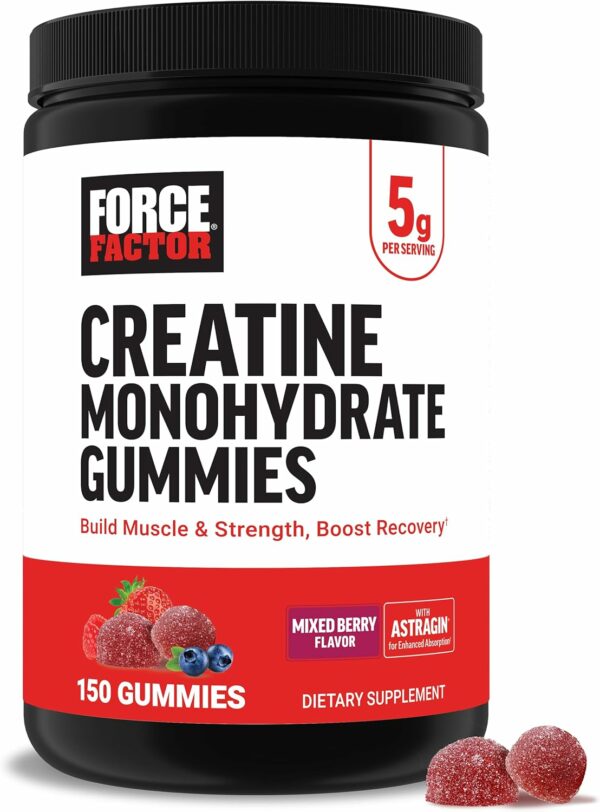Creatine is a naturally occurring organic compound found in vertebrates, primarily in muscle and brain tissue. It is crucial for storing and releasing cellular energy, facilitating the recycling of adenosine triphosphate (ATP) by converting adenosine diphosphate (ADP) back to ATP through the donation of phosphate groups. Creatine also acts as a buffer within the body.
Your body naturally produces about half of its daily creatine supply (1 to 2 grams), primarily in the liver, kidneys, and pancreas. The other half comes from dietary sources, particularly protein-rich foods like red meat, seafood, and animal milk. Approximately 95% of the body’s total creatine and phosphocreatine stores are found in skeletal muscles, with the remainder distributed in the blood, brain, testes, and other tissues. Creatine is not considered an essential nutrient.
Reasons why creatine supplementation is considered beneficial for health:
While the statement “everyone should take creatine for health” might be strong, the sources indicate that creatine is generally safe for healthy individuals and offers a wide range of benefits, particularly for certain populations and under specific conditions. It is always recommended to consult a healthcare provider before starting any new supplement.
Here are the key health benefits and considerations for taking creatine:
- Energy Production and Physical Performance
◦ Creatine helps create a steady supply of energy in your muscles for contraction, especially during exercise. It rapidly resynthesizes ATP from ADP using phosphocreatine (PCr) through a reaction catalyzed by creatine kinase.
◦ Supplementation can increase maximum power and performance in high-intensity, anaerobic, repetitive work by 5% to 15%.
◦ It exerts positive ergogenic effects on short-duration, high-intensity exercise activities and potentiates exercise training adaptations.
◦ Creatine monohydrate is considered the most effective nutritional supplement for increasing high-intensity exercise capacity and muscle mass during training.
◦ It promotes muscle recovery after exercise by activating satellite cells that help heal micro-tears in muscle fibers.
◦ Creatine helps increase anabolic hormones (like insulin, human growth hormone, estrogen, and testosterone) and boosts water content in muscle cells, which may promote muscle growth and reduce dehydration and cramps.
◦ For people who work out regularly, studies show it can improve exercise performance, aid recovery, increase muscle mass, prevent severe muscle injuries, and help tolerate more intense activity. - Muscle Growth and Age-Related Muscle Loss
◦ Regular creatine intake, combined with weightlifting and exercise, can increase muscle growth in individuals aged 18 to 30. Some studies suggest gains of an additional two to four pounds of muscle mass over 4 to 12 weeks of regular exercise.
◦ In older adults, combining creatine supplementation with resistance training leads to greater physiological benefits, including improved upper and lower body strength, increased fat-free mass, muscular endurance, and bone mineral density, helping to slow age-related muscular decline. - Cognitive Performance and Neuroprotection
◦ Creatine is reported to have beneficial effects on brain function and cognitive processing, particularly in individuals who are stressed (e.g., due to sleep deprivation) or cognitively impaired.
◦ A 2018 systematic review indicated that short-term memory and intelligence/reasoning may be improved by creatine administration. A 2023 meta-analysis further supported improved memory performance, especially in older adults.
◦ A single large dose of creatine (0.35 g/kg) may partially restore cognitive performance and resolve aberrant brain metabolism parameters in sleep-deprived subjects.
◦ It increases phosphocreatine in the brain, potentially enhancing memory.
◦ Creatine has shown promise in neuroprotection and addressing brain-related disorders. A pilot study on early Alzheimer’s disease patients showed an average of 11% increase in brain creatine stores and a 4.4% increase in total cognition scores after 8 weeks of supplementation, with improvements in working memory, oral reading recognition, inhibitory control, and attention.
◦ It may be beneficial in treating depression, with some studies showing a significant reduction in depressive symptoms when used as an adjunct to antidepressant therapy.
◦ Creatine may help offset some damaging effects of traumatic brain injury (TBI), with a pilot study showing improvements in communication, locomotion, and cognitive function, and reduced dizziness, headaches, and fatigue in children and adolescents after TBI.
◦ Creatine supplementation has been observed to improve sleep on workout days for individuals new to resistance training, potentially mitigating stress-induced sleep disruption. - Cardiovascular Health
◦ Creatine may positively impact vascular health through mechanisms such as antioxidant action, effects on nitric oxide, supporting endothelial function, and protecting cellular DNA and RNA.
◦ Studies suggest that creatine supplementation can increase endothelial function in both larger and smaller arteries, which has been associated with a 13% decrease in the risk of cardiovascular events like heart attack or stroke.
◦ It may help improve metabolic parameters such as fasting blood glucose and triglycerides. In adults with high cholesterol, supplementation has shown reductions in total cholesterol, triacylglycerides, and very-low-density lipoprotein (VLDL).
◦ For individuals with type 2 diabetes, creatine in conjunction with exercise training has resulted in reduced HbA1c (a measure of long-term blood glucose control) and blood glucose concentrations. - Other Benefits and Specific Populations
◦ Methyl Metabolism: Endogenous creatine synthesis is a burden on methionine metabolism. Exogenous creatine supplementation can free up methyl groups for other vital processes, such as DNA methylation, and help convert homocysteine back to methionine.
◦ Vegans and Vegetarians: These diets are associated with lower muscle creatine levels, so athletes on these diets may particularly benefit from creatine supplementation. Creatine monohydrate is suitable for vegans and vegetarians as its raw materials are not animal-derived.
◦ Pregnancy: Creatine is transferred to the placenta and fetus during human pregnancy, and animal studies suggest it can promote neural development and reduce complications from birth asphyxia. Breastfed human preterm infants show higher cerebellar creatine levels. However, increased dietary intake is suggested over supplementation without more human trial data.
Safety and Dosing Considerations: Creatine monohydrate is the most common and well-researched form. The International Society of Sports Nutrition’s position stand states that creatine is safe for healthy populations from infants to the elderly and performance athletes, and long-term use (up to 5 years) is considered safe. While some side effects like weight gain (due to water retention), dizziness, nausea, vomiting, and diarrhea have been reported, many concerns about muscle cramps, dehydration, and kidney damage have been discredited by systematic reviews.
Typical dosing includes a loading phase of approximately 0.3 g/kg/day (or 20 grams/day) for 5-7 days, followed by a maintenance phase of 2-5 grams/day. For brain-related benefits, some individuals, like the speaker in FoundMyFitness Clips, take higher doses of 10 grams daily, and even 15-20 grams on days with sleep deprivation or significant stress, to ensure “spillover” to the brain beyond what muscles take up.
It’s important to talk to a healthcare provider before taking creatine, especially if you are pregnant or breastfeeding, have diabetes, kidney disease, liver disease, or bipolar disorder, as there is insufficient evidence for safety in these populations or potential risks
Creatine Gummies
Force Factor Creatine Monohydrate Gummies, 5g Dose for Men & Women to Support Muscle, Strength, Recovery, Cognitive Health & Memory, Mixed Berry, 150 Gummies


